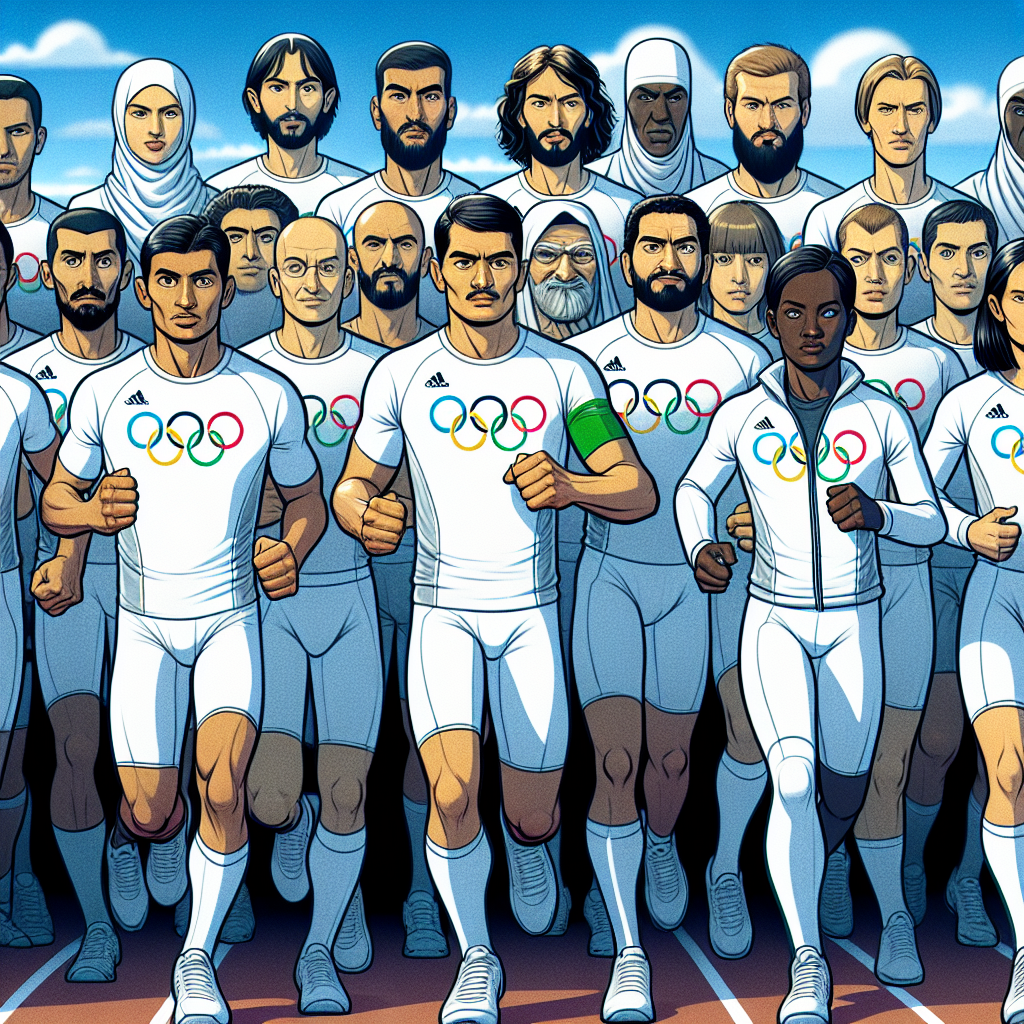Guillaume Junior Atangana, a visually impaired sprinter, made history on Sunday at Paris’ Stade de France by clinching a bronze medal in the men’s 400m with a personal best time of 50.89 seconds. This remarkable achievement marks the second medal for the Refugee Paralympic Team at the Paris 2024 Games.
“I am very happy to have this medal. It shows that the Paralympic movement is galvanizing for refugees and it is an honor for me: I wrote my name in history,” said Atangana, known widely as Junior. He dedicated his success to refugees worldwide, encouraging them to "believe in yourself!"
Junior’s bronze follows the Refugee Paralympic Team's first-ever medal, won by Zakia Khudadadi in the Para taekwondo K44 -47kg category just days earlier. Junior had set high expectations before the Games, aiming for a medal and even a world record. His performances have lived up to his ambitions, achieving three consecutive personal bests over two days of competition.
Guided by fellow refugee Donard Ndim Nyamjua, Junior posted a personal best of 51.95 seconds in his opening heat on Saturday, followed by 51.03 seconds in the semifinal, securing his place in the final as the second-fastest qualifier behind France’s Timothee Adolphe. Junior, who competes blindfolded due to his vision impairment, is also set to compete in the 100 meters later in the Games.
Junior lost his sight entirely by the age of 12, shattering his dreams of playing professional football. However, running rekindled his confidence and love for sports. "When I’d just lost my sight, it wasn’t easy for me; I was worried about walking. But when I ran, I didn’t feel worried," he shared.
Competing in Paris, Junior aims to inspire other refugees and people with disabilities, proving that "anything is possible." He emphasized, "I want to show the world that being blind doesn’t mean your life is over; you can still do great things."
United Nations Deputy High Commissioner for Refugees, Kelly T. Clements, praised Junior and his guide runner Donard for their inspiring performance, saying, “Watching Guillaume and his guide runner Donard secure bronze is an extremely emotional and uplifting experience for all those cheering the Refugee Paralympic Team. They exemplify the courage, perseverance, and hard work that refugees put into building new lives and opportunities.”
Junior is part of the largest-ever Refugee Paralympic Team, consisting of eight athletes and two guide runners, representing the hopes and dreams of 120 million forcibly displaced people worldwide, including an estimated 18 million with disabilities. The team competes in six sports: Para athletics, Para powerlifting, Para table tennis, Para taekwondo, Para triathlon, and wheelchair fencing.
This is the third time the Refugee Paralympic Team has competed at the Games, growing from two athletes in Rio 2016 to six in Tokyo 2020, and now eight in Paris. With two medals already, the Refugee Paralympic Team is surpassing the achievements of the Refugee Olympic Team, which won its first-ever medal, a bronze in women’s boxing, at the Paris 2024 Olympics.
The UN Refugee Agency (UNHCR), in partnership with the International Paralympic Committee (IPC), the International Olympic Committee (IOC), and the Olympic Refuge Foundation, supports refugees at the Olympic and Paralympic Games, with the Refugee Paralympic Team competing under the IPC flag.











